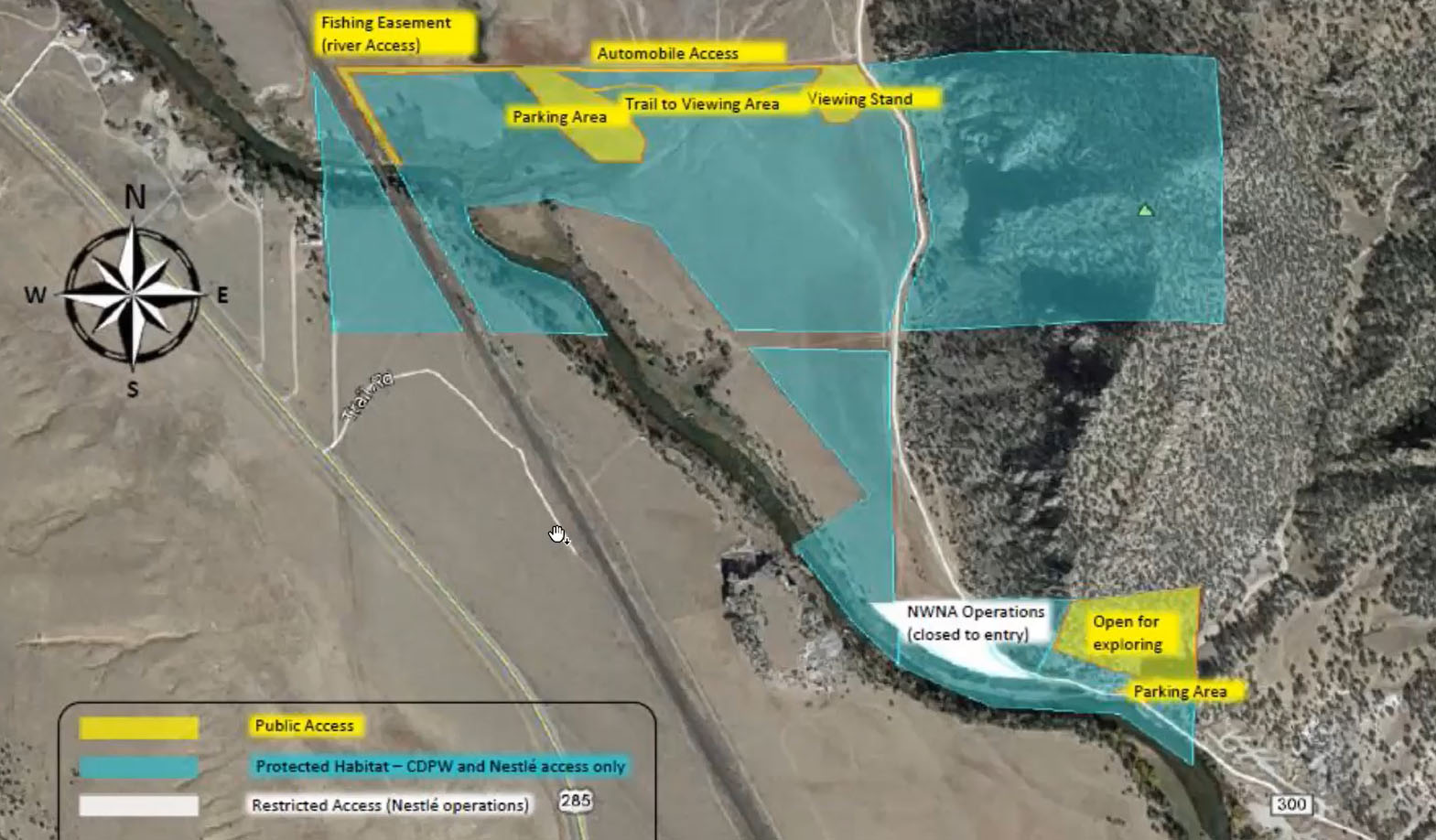The Thursday night session in the Nestlé Waters North America 1041 permit hearing began with the opposition group responding to County Commissioners’ questions and ended with Nestlé representatives responding to comments opposing the permit.
During questioning, Unbottle and Protect Chaffee County Water co-founder Tom Bomer insisted that his group has shown where “mistakes were made” with the original 1041 permit and that those mistakes give the Commissioners the ability to deny the permit extension.
“No need was ever substantiated,” Bomer said, referencing a requirement of the 1041 statute. He also emphasized the incomplete conservation easement.
Jennifer Swacina, also a cofounder of the Unbottle group, said the group’s biggest concern is that the benefits of Nestlé’s local operations don’t outweigh the loss to the county. She reiterated her opinion that “replacing water with water from outside the county is a shell game.”
After hearing all public comments, Chairman Greg Felt granted Nestlé representatives an opportunity to respond to comments opposing extension of the 1041 permit.
Larry Lawrence, Nestlé natural resources manager for this region, countered claims that the original permit was sloppy or flawed by noting that the original permit hearing included 96 hours of testimony during seven meetings and resulted in 44 permit conditions.
He recommended an in-person review of Nestlé’s annual reports to help ensure that Commissioners, staff and the public are kept informed on a regular basis.
Regarding the conservation easement, Lawrence said that Nestlé representatives had spoken to “many people about taking on this easement, but they declined.”
Eventually, Lawrence said, Nestlé began working with Colorado Parks and Wildlife to establish the easement, and CPW officials suggested the land swap to create a contiguous property.
Steve Sims, an attorney who previously served as assistant Colorado attorney general and senior water counsel for the state, represented Nestlé. He addressed the “need” issue raised by the Unbottle Group, calling it “a red herring.”
Sims explained that the “need” regulation is not applicable because it applies only to a water utility service provider with a “service area” in the county.
Section 3-303(1)a of the 1041 regulation reads, “To the extent applicant’s service area is located within or partially within the boundaries of the County, the need for the proposed project can be substantiated.”
Sims said, “Service area is how you determine your need. Need is based upon your demand” in that service area, which only applies to a municipal utility.
Sims also addressed water issues. He countered concerns that Nestlé will draw down the aquifer and dry up domestic wells by citing data that show Nestlé’s wells draw water from a portion of the Pinedale Aquifer that is not directly connected to the rest of the aquifer.
The majority of the aquifer is within the Trout Creek watershed, but Sims said Nestlé’s water chemistry data show that water from their production wells is not influenced by irrigation recharge, which affects most of the aquifer.
He said the data indicate the wells are fed with water from Arnold Gulch, and with the Nestlé wells located at the far end of the aquifer, “there are no wells that could be harmed by us.”
Sims also addressed the “shell game” of augmentation water and trans-basin water diversions, noting that hundreds of thousands of acre-feet of water are diverted from the West Slope to the Front Range every year.
Some of that trans-basin water, he said, is responsible for the Voluntary Flow Management Program, which sustains the local recreation economy and supports the Gold Medal fishery.
“Under the Colorado Compact, (Las Vegas) can’t use our water,” he stated. “We have a certain amount of water in the Colorado River that Colorado is allowed to use. … It’s used in Denver, it’s used in Fort Collins, it’s used in the Arkansas Basin, it’s used below Pueblo, it’s used throughout the state. It’s an enormous benefit to Colorado.”
And since Nestlé’s water right and the water right that provides Nestlé’s augmentation water are both relatively junior, Nestlé’s wells would be among the first to be shut down in the event of extreme drought conditions.
Sims also addressed questions about limitations on Nestlé’s pumping operations by citing Condition 4.34 in the 1041 permit, which prohibits the water levels in the wells from dropping “below one foot (1’) above the top of the screen.”
Sims told the County Commissioners, “A lot of the people who spoke think that you own this water. This is not your water, and you know it. So you’re not selling Chaffee County’s water. This is water that, if Nestlé wasn’t using it, would be used by someone senior downstream.”
After closing the public comment portion of the hearing, the Commissioners decided to continue the hearing to 1 p.m. Thursday, Nov. 5, at Council Chambers and online via Zoom.





